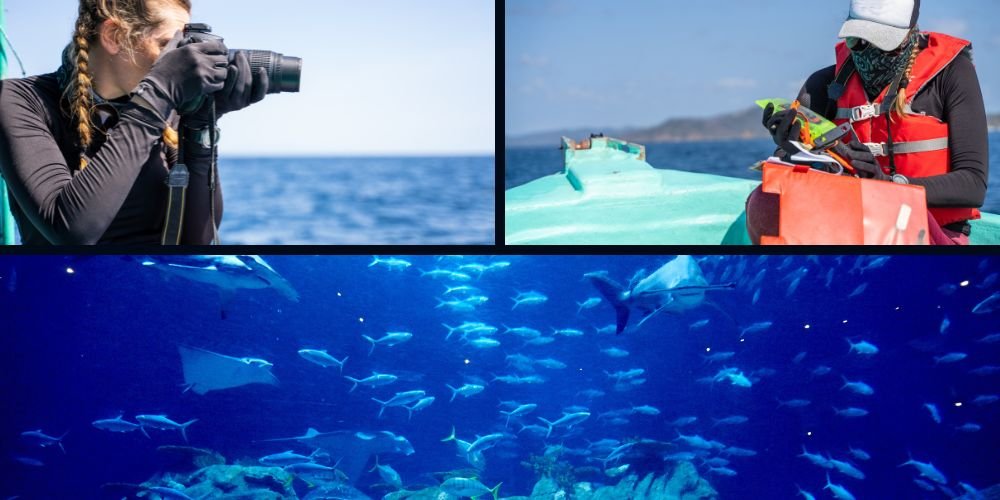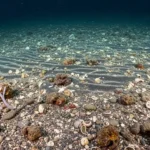In the dynamic expanse of our planet, the oceans play a pivotal role in sustaining life and regulating the Earth’s climate. However, the delicate balance of marine ecosystems is threatened by various human activities. In this article, we embark on a journey to explore the importance of marine life conservation, uncovering the underlying challenges, opportunities, and the collective responsibility we share in safeguarding the future of our oceans.
Understanding Marine Life Conservation
Marine life conservation involves a comprehensive approach to protecting and sustaining diverse ecosystems that thrive beneath the ocean’s surface. It encompasses strategies to mitigate pollution, overfishing, habitat destruction, and the impacts of climate change. Preserving marine biodiversity is crucial for the health of our oceans and the well-being of the entire planet, as marine ecosystems play a significant role in global oxygen production and carbon sequestration.
Threats to Marine Life
Various anthropogenic activities pose severe threats to marine life. Pollution from industrial discharges, plastic waste, and agricultural runoff contaminates the oceans, harming marine species and disrupting ecosystems. Overfishing depletes fish populations, affecting the targeted species and the intricate food webs they support. Habitat destruction, including coral reef degradation and coastal development, further exacerbates the vulnerability of marine ecosystems.
Conservation Strategies
Efforts to Conserve Marine Life involve a multifaceted approach, incorporating international cooperation, sustainable practices, and innovative technologies. Conservation initiatives include the establishment of marine protected areas, the implementation of sustainable fishing methods, and the decline of single-use plastics. Additionally, supporting scientific research, fostering public awareness, and promoting responsible tourism contribute to preserving marine environments.
Marine Conservation Success Stories
Despite the challenges, notable successes have been achieved in Marine Life Conservation efforts worldwide.
Coral Reefs: Guardians of Biodiversity
Coral reefs, often referred to as the rainforests of the sea, are essential ecosystems that support an incredible diversity of marine life. Successful conservation projects, such as the Great Barrier Reef Marine Park Authority in Australia, demonstrate the positive impact of stringent protection measures, coral restoration initiatives, and community involvement in preserving these vital underwater habitats.
Fisheries Management: Balancing Harvest and Sustainability
Countries like Iceland and New Zealand have implemented effective fisheries management practices, including quotas, seasonal closures, and monitoring systems. These measures aim to ensure sustainable fishing, prevent overexploitation, and maintain the health of marine ecosystems, while supporting the livelihoods of local communities that depend on fisheries.
Plastic Pollution Reduction: A Global Effort
The global movement to reduce plastic pollution has gained momentum, with initiatives such as the Ocean Cleanup Project and widespread plastic bans. Efforts to clean up ocean debris, raise awareness about the impact of plastic on Marine Life Conservation, and promote sustainable alternatives contribute to mitigating the threat of plastic pollution.
Innovations in Marine Life Conservation
Technological advancements and innovative solutions are crucial in enhancing marine conservation efforts.
Artificial Intelligence and Satellite Technology
Artificial intelligence and satellite technology aid in monitoring and managing marine environments. These tools enable the real-time tracking of illegal fishing activities, the identification of marine pollution hotspots, and the assessment of the effects of climate change on ocean temperatures and currents, empowering conservationists with valuable data for informed decision-making.
Marine Protected Areas and Autonomous Vehicles
The establishment of marine protected areas, combined with the use of autonomous underwater vehicles (AUVs), facilitates efficient monitoring and enforcement of conservation regulations. These technologies contribute to preserving sensitive marine habitats and enforcing sustainable fishing practices in designated areas.
Citizen Science and Community Engagement
Citizen science initiatives, such as community-based monitoring programs and beach cleanups, engage the public in hands-on conservation efforts. By fostering a sense of responsibility and connection to the marine environment, these initiatives amplify the impact of conservation endeavors and promote a shared commitment to safeguarding our oceans.
Challenges and Future Directions
Despite progress, significant challenges persist in the realm of marine life conservation.
Climate Change and Ocean Acidification
The escalating impacts of climate change, including rising sea temperatures and ocean acidification, pose grave threats to marine ecosystems. Mitigating these effects requires global collaboration to reduce carbon emissions, implement sustainable energy practices, and adapt to the changing conditions of marine life.
Illegal, Unreported, and Unregulated (IUU) Fishing
IUU fishing remains a major challenge, undermining global efforts to manage fish stocks sustainably. Enhanced international cooperation, improved monitoring and surveillance, and the implementation of advanced technologies are essential to combating illegal fishing practices and protecting vulnerable marine species.
Plastic Pollution and Microplastics
Despite awareness campaigns and policy changes, plastic pollution continues to plague the oceans. Addressing this issue requires concerted efforts to reduce plastic production, improve waste management systems, and develop innovative solutions for removing existing plastic debris and microplastics from marine environments.
Conclusion
Marine life conservation is not merely a responsibility; it is an imperative for the well-being of our planet and future generations. Through collective action, innovative technologies, and sustainable practices, we can strive for safety and restore the invaluable ecosystems that thrive beneath the ocean’s surface. As we navigate the challenges of preserving marine life, the journey towards a harmonious coexistence with the oceans is guided by the promise of global collaboration, environmental stewardship, and the enduring beauty of our marine heritage.





